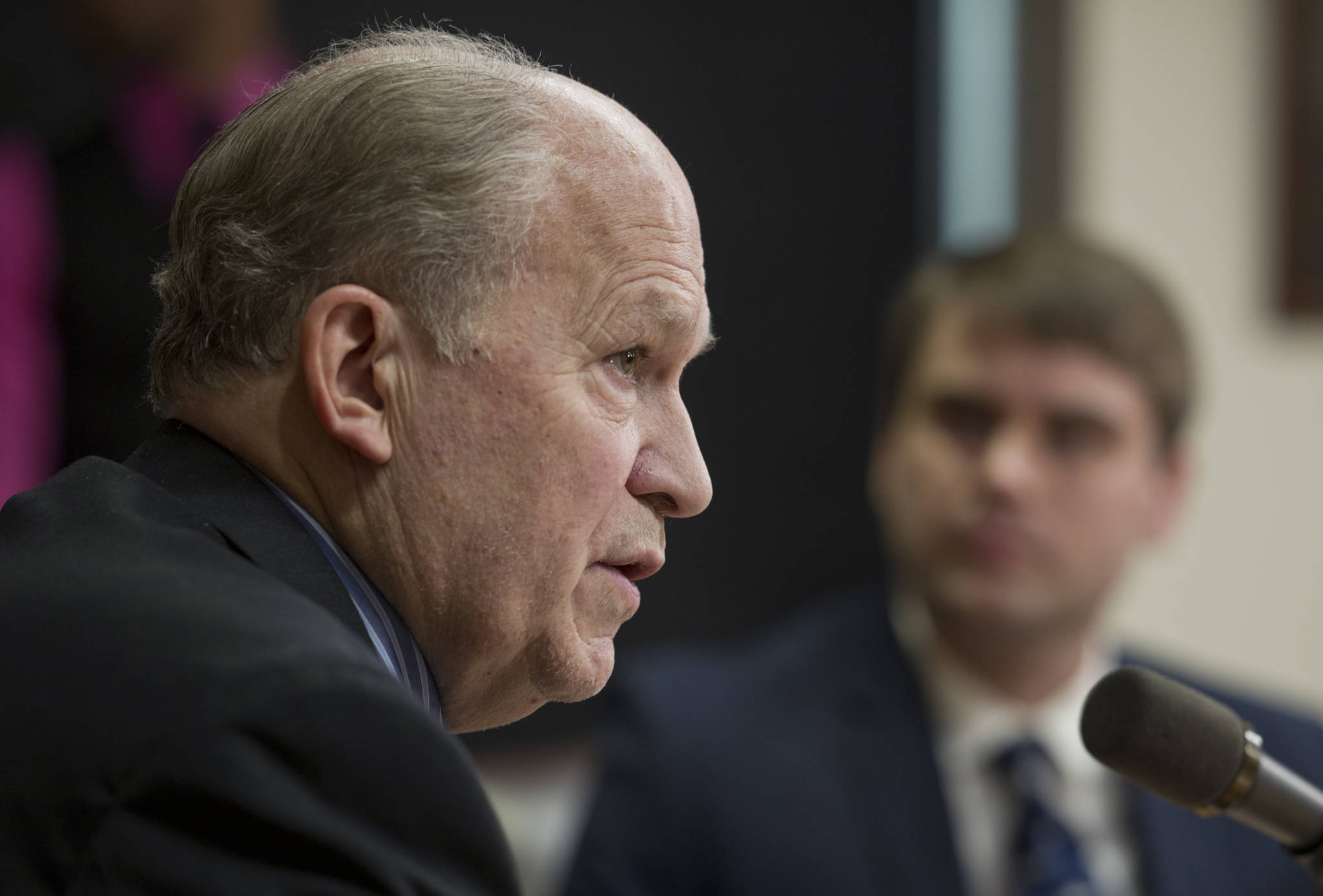Pizza, Italian, or Mexican?
Anyone who has tried to get a group of people to pick a restaurant for dinner knows how hard it can be. There are as many choices as there are individuals.
Now, imagine a group of 60 people, and instead of picking just a restaurant, you have to pick a specific meal at that restaurant. One meal to accommodate the wants, dietary restrictions and needs of all 60 people.
That’s what the Alaska Legislature is going through right now.
The 60 members of the Legislature — 40 in the House and 20 in the Senate — all see the same obstacle, the state’s $2.8 billion deficit.
When it comes to feeding that deficit, almost everyone has a different idea of the best meal. It takes a lot of effort to get people to agree.
Speaking to reporters on Wednesday, Gov. Bill Walker said he sees two different philosophies at work when it comes to the deficit.
“Are we going to fix it, or are we going to try to get through it?” he said.
The 22-member coalition majority that runs the Alaska House prefers the first philosophy.
It has proposed a four-part plan to fix the deficit. That plan includes modest budget cuts, cuts to the state subsidy of oil and gas drilling, spending from the earnings reserve of the Alaska Permanent Fund, and an income tax.
The House Majority sees uncertainty as the state’s biggest threat. If people don’t know how the deficit will be fixed, they’ll hold off on investing — or so the argument goes.
The 14-member majority that runs the Alaska Senate has the second philosophy.
It has proposed addressing the deficit through spending from the earnings reserve of the Alaska Permanent Fund, and budget cuts.
The Senate has proposed about $275 million in budget cuts this year, and it has said it will propose more in future years, but it’s not clear where those cuts will come from. In addition, even if those future cuts happen, the state will still have a deficit.
That’s by design, said Sen. Kevin Meyer, R-Anchorage, in a Monday hearing.
“In the Senate, we like that little bit of deficit. It keeps the pressure on us to keep the spending down,” he said.
If the Senate keeps spending down — and it has proposed spending caps to force future legislatures into that position — an expected gradual rise in oil prices will balance the state’s budget in the long run. The Senate’s plan reduces the budget enough that the state’s savings would be stretched until that happens.
If those are the two menu options — House and Senate — the Legislature will spend its next several weeks negotiating a compromise.
On Wednesday, the House appointed three legislators to a six-member committee designed to come up with a compromise between House and Senate versions of the Permanent Fund spending idea.
Earlier this year, members of the House Majority said that it wanted to see all four pieces of its plan on the table for compromise together. The idea is that the House and Senate majorities could barter components of each piece. If, for example, the House agreed to cut more from one part of the budget, the Senate might agree to additional reductions in the state subsidy for drilling.
“All these are tied together,” said House Majority Leader Chris Tuck, D-Anchorage, on Tuesday.
Wednesday was the 100th day of the Legislative session, which is constitutionally limited to 121 days. Lawmakers can extend for 10 more days, then they’ll have to call a special session.
The drop-dead deadline in all this debate is June 30. That’s because the state’s fiscal year starts July 1.
If lawmakers can’t reach an agreement by then, state government will shut down.
• Contact reporter James Brooks at james.k.brooks@juneauempire.com or call 419-7732.

